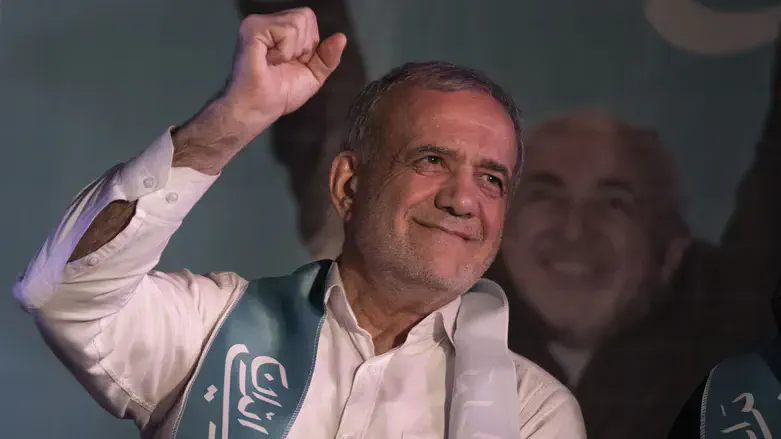
Iranian President Masoud Pezeshkian has voiced concerns about newly passed legislation that enforces stricter penalties on women who defy mandatory hijab rules, the AFP news agency reported.
Since the 1979 Islamic Revolution, Iranian women have been required to cover their hair in public. However, the number of women appearing without hijabs has surged, especially following protests which were sparked by Mahsa Amini's death in custody in September 2022. Amini, a 22-year-old Iranian Kurd, had been arrested for allegedly violating the dress code.
While Iran’s parliament has approved the new "hijab and chastity" law, it still requires the president’s signature by December 13 to be enacted.
"As the person responsible for promulgating this law, I have many reservations about it," Pezeshkian was quoted as having said during an interview on state television late Monday.
"We risk ruining a lot of things in society because of this law," the Iranian President warned, emphasizing that leaders must avoid measures that could alienate the public.
Although the text of the law has not been officially released, Iranian media reports cited by AFP indicate it includes severe penalties, such as fines equaling up to 20 months' average salary for women who improperly wear a hijab or go without one in public or on social media.
Those who violate the law would have 10 days to pay the fines or face additional penalties, including travel bans and restrictions on public services, such as obtaining driver’s licenses.
Pezeshkian, who was elected in July following the death of former President Ebrahim Raisi in a helicopter crash, has been touted as a moderate, even though he has voiced many of the same positions as presidents who were considered “hardline”.
The country’s most recent “moderate” President before Pezeshkian was Hassan Rouhani, who was first elected in 2013 and reelected four years later.
Despite being touted as a “moderate” reformist, Iran set new records under Rouhani’s presidency in the number of executions, many for political or religious "crimes".
He also did little in the way of freeing reformist political leaders who were jailed after protesting the 2009 election and in stopping the limitations on freedom of speech in Iran, despite having openly criticized those policies.
